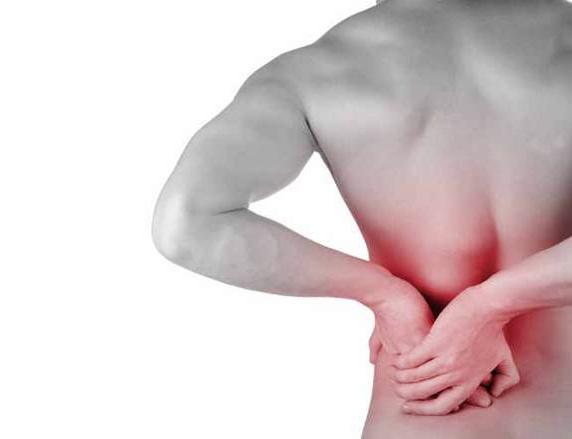There is much investigation going into the cognitive diseases arena with scientists and teams spending a great amount of time investigating how we can waylay and prevent the onset of dementia. Dementia is among the top 3 Diseases of Affluence in developed nations and rates are increasing as we age longer and become more prone to the slowing and degenerative nature of our brains being unable to keep up with our ageing bodies. As rates rise globally, our understanding of the implications of dementia and how it impacts us is also growing. Taking steps in our youth can help us to delay the onset of dementia and allow us to have a better quality of life further into our senior years.
The onset of dementia has implications on our physical self with symptoms of mobility, stability and spatial awareness being main concerns with sufferers. As degenerative change takes hold, daily tasks such as eating, moving on our own and even swallowing can become affected and ultimately creates a life threatening condition. It is not that our body is unable to keep going, but our brain has become unable to co-ordinate the intricacies of function that allow us to be independent. Also, we become unable to communicate our own conditions to caregivers or understand what our symptoms may be. This leads to a decline in our ability to perform even the most basic of functions and we become reliant on technology and carers to continue. Ultimately the co-ordination of basic functions becomes so impaired that the disease becomes terminal.
Alzheimers is closely linked with dementia with 60-70% of cases of dementia leading to the onset of Alzheimers, a neurodegenerative disease where the neurons and synapses in the brain become lost and the atrophy of certain areas of the brain that control motor function and memory recall. Whilst genetic factors play a large role in our predisposition to the risk of developing Alzheimers, there are lifestyle factors that influence the onset of the neurodegeneration and these have been listed by the Florey Institute in Melbourne as exercise and a mediterranean diet along with healthy sleep patterns. Avoiding stress and stress management also helps to waylay the onset of this disease and this is an area that institutions are utilising in the treatment of dementia and diseases such as Alzheimers disease.
The onset of the symptoms of dementia can be stressful in themselves and can create heightened stress responses as sufferers begin to forget things, become disorientated, have problems with language and lack of motivation and behavioural issues. This can lead to unexplained emotional outbursts and mood swings. Prof Linda Gerdner of Stanford University in California is the lauded researcher who first started using music in 1992 as a way to initiate responses and get Alzheimer sufferers responding, speaking, moving and even recognising loved ones. According to Prof Lea T Grinberg of the UCSF Memory and Ageing Centre in California talks about rates of 60 -70% of dementia cases being preventable and we can be proactive in developing the connections in the brain or synapses. If we can maintain the development of these synapses through exercise and brain training and stimulation of learning centres, we can help to have more synapses firing and overcome the decrease in brain activity that is associated with the disease.
Music is shown to have an influence on alzheimers Playing familiar music helps to reduce agitation in alzheimers patients and possibly reducing the anxiety that can come along with the disease. With FMRI technology, we have come to be able to identify that music helps to stimulate the distributor networks of the brain that are involved in attention, memory, expectation and emotion. Dr Maggie Haertsch of Arts Health Institute in Australia works with music in patients of dementia and sees rhythm and movement along with expression of vocalising and talking. Music wakes up the brains of dementia patients. activating our autobiographical and perceptual memory connecting us with memories of our past. This helps to motivate and stimulate the brain networks and this helps to keep our brain activity heightened not only during the music but up to 20min after the brain stimulation.
Stimulating learning centres in the brain also helps with the development and reactivation of brain activity in the treatment and management of Alzheimers and Dementia. Larouche, Hudon, and Goulet from the Quebec University in Canada have published research in 2015 that cites actions of mindfulness training in the early intervention of Alzheimers disease can waylay and even help prevent onset. Learning new skills such as a language or even new motor skills as involved with exercise or sport based actions can also help with the stimulation of brain activity that helps to prevent the onset of the disease. Psychologist Ellen Bialystok of the York University in Toronto conducted studies in 2010 that showed bilingual sufferers presented with symptoms some 4-5 years later than those who didn’t speak another language.
Essentially we need to keep our brains stimulated in as many ways as possible and using tools that stimulate brain activity is a great way to ensure that we are able to maintain synapse activity and keep our brains functioning and ‘in good shape’. Its not necessarily about exercising the brain but in keeping it stimulated and ensuring that as we age, we take good care of our functions to help offset any genetic predisposition that we may have towards dementia and the degenerative cognition diseases we are seeing more of. There is a certain amount of responsibility that we can take and contribute to reducing the risk of dementia and as Dr Laura Jacobsen of the Florey Institute says, “the cause of Alzheimers disease is still out there, we know that there are a lot of genetic risk factors but I believe that the other side of it is that there are environmental factors that add or contribute to a genetic predispostion to Alzheimers disease”
For something beautiful on this story please watch the following, especially the last 15sec of this clip. https://www.youtube.com/watch?v=r9Vnvrkviqc



